Speaker Biographies
Experts from the technical as well as social field together with representatives from critical infrastructure operators will discuss state-of-the-art research results and recent tools stemming from various EU-funded projects. The goal is to provide an insight into current challenges and emerging trends of critical infrastructure protection.
 | Mohammed Amine Abid, University of Passau Dr. Mohammed Amine is currently a Postdoc Fellow in the chair of Computer Networks and Communications at the University Of Passau, Germany. From 2012 to 2016, he was appointed as an assistant professor at the National School of Computer Science (ENSI: http://www.ensi.rnu.tn) in Tunisia. He received his M.Sc. and Ph.D. degrees both in Computer science, in the area of networks and distributed systems, from the National School of Computer Science, in 2009 and 2012 respectively. His research and teaching interests focus on risk management, physical and cyber security, privacy preserving, energy systems and smart grid, mobile ad hoc and wireless sensor networks. Particularly, he works on QoS management in wireless networks, location-based routing, RPL and precision agriculture, M2M, IoT, autonomous flying machines, performance evaluation and protocol optimization and specification. He also served as an invited professor in several Engineering schools in Tunisia (Tunisia Polytechnic Engineering School (EPT), Higher School of Digital Economy (ESEN), etc.). Home Page: http://www.fim.uni-passau.de/en/computer-networks/staff-and-guests/dr-mohamed-amine-abid/ |
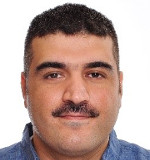 | Ali Alshawish, University of Passau Ali Alshawish is a research associate and a Ph.D. candidate in the Computer Networks and Computer Communications Group, Faculty of Computer Science at the University of Passau, Germany. His research interests include network security, computer networks, privacy preserving using encryption, energy systems, surveillance technologies, and critical infrastructure protection. His current research focuses on risk management for utility networks. He holds a master’s degree in Computer Science and Automation from the Ilmenau University of Technology, Germany. He is currently a member of the Institute of IT-Security and Security Law (ISL) and involved in the EU-project “HyRiM”. Home Page: http://www.fim.uni-passau.de/en/computer-networks/staff-and-guests/ali-alshawish/ |
 | Stefan Beyer, S2 Grupo Dr. Stefan Beyer is Head of Research and Development at S2 Grupo, a leading European Cyber Security company and CERT operator. He obtained his PhD in Computer Science from Manchester University (United Kingdom) in 2004 and his BSc in Computer Science in 2001 from the same university. He has more than 10 years of experience in leading international research projects and is particularly specialised in transferring research results into industry. He was the Director of the Internet and Ubiquitous Computing research group at Instituto Tecnológico de Infromática (Valencia, Spain) before joining S2 Grupo. Home Page: https://s2grupo.es/es/inicio/ |
 | Santiago Cáceres, ETRA I+D Santiago Cáceres, PMP, has been involved for more than ten years as senior project manager and analyst at the Technology Department of ETRA Research and development in several European projects in the areas of ICT and Security. His main interests are the protection of critical infrastructures and the use of secure technologies in the Smart City. He is Electronic Engineer – communications networking specialization - from the Polytechnic University of Valencia (Spain). He has worked in the past in LE-Technichs (Slovenia), the Technical University of Prague (Czech Republic) and in Generalitat Valenciana (the public administration of Valencia, SPAIN). Home Page: http://www.etra.es/en/ |
 | Rafa Company, Valenciaport Foundation Rafael Company (1971) is Environmental, Chemical and Biology Senior by the University of Valencia (1995). He has a large experience as responsible for the Environmental, Safety and Security International Projects on European Ports. Furthermore, he did a Master on Environmental Sciences degree specialised on Chemical Engineering. Rafael is involved in several European Projects since 2003 when he joined to the Port of Valencia, coordinating the assigned activities in different projects mainly related to environmental protection and port security as well as creating different port networks. In this way, he participates as speaker in International Forums, Congresses and Conferences around the world. Currently, Rafael is security project manager at the Valenciaport Foundation, a R+D area of Valenciaport. Moreover, Rafael is General Secretary and Technical Director of the European Economic Association EUROPHAR, a group formed by Port Authorities, Institutions and private organizations. Last but not least, Rafael is the SAURON project coordinator. Home Page: https://www.valenciaport.com/en/ |
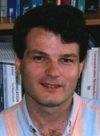 | Christos Douligeris, University of Piraeus Research Center Christos Douligeris, currently a professor at the department of Informatics, University of Piraeus, Greece held positions with the Department of Electrical and Computer Engineering at the University of Miami. He was an associate member of the Hellenic Authority for Information and Communication Assurance and Privacy and the President and CEO Hellenic Electronic Governance for Social Security SA. Dr. Douligeris has published extensively in the networking scientific literature and he has participated in many research and development projects. He is the co-editor of a book on ‘‘Network Security’’ published by IEEE Press/ John Wiley and he is on the editorial boards of several scientific journals as well as on the technical program committees of major international conferences. He has been involved extensively in curriculum development both in the USA and Greece. His latest work has focused on the use of big data and artificial intelligence techniques in several areas, mainly in Telecommunications Planning and Management and in Security Analysis of Port Information Systems. Moreover, he has been working in data analytic techniques in Learning and Education and Emergency Response Operations. Prof. Douligeris has been the technical project manager of DAEDALUS, a MedEnpi funded project that dealt with the matching of skills between employers and potential employees through the development of an ICT platform. The Daedalus consortium consisted of partners from Greece, Cyprus, Palestine, Lebanon, Tunisia, Egypt and Italy. Prof. Douligeris has been instrumental in the signing of MOUs between his lab and major companies operating in Greece, like COSMOTE, Vodafone and Nokia, that allow the continuous interaction, training, transfer of knowledge and hiring of university students and graduates in the respective companies. Home Page: http://www.unipi.gr/unipi/en/ |
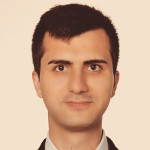 | Armend Duzha, Maggioli Group Armend Duzha is an EU Project Manager at Maggioli Group, Special Projects. He received his M.Sc. in Economics and Market Policy (2013) and B.A. in Business Administration and Management (2011) from the University of Bologna. His main responsibilities include, but are not limited to the design, coordination and management, monitoring, controlling and reporting of the multiple R&D projects co-funded by the European Union under the various Frameworks and Programmes (e.g., Horizon 2020, Ambient Assisted Living, Interreg MED, Interreg CE, Interreg ADRION, ENI CBC MED, Erasmus+ etc.). In particular, he is/has been actively involved in the following EU projects: e-Health/e-Inclusion field (indicative projects include CarerSupport AAL), Cyber Risk Assessment and Management field (indicative projects include MITIGATE H2020), Cloud Computing field (indicative projects include UNICORN H2020, ARCADIA H2020). Mr. Duzha is also involved in the dissemination and exploitation planning and operations of the EU funded projects. He represents Maggioli in EU project reviews, international consortia, conferences and workshops and participates in a number of events organized in Italy and abroad. He has excellent communication and mediation skills, and the ability to deal well with people in many different contexts, which he has gained through his participation in multinational consortia. Home Page: http://www.maggioli.com/ |
 | Prof. Manuel Esteve (Dr.Ing.), Universitat Politècnica de València Full Professor in the Communications Department at UPVLC with more than 25 years of experience in the field of real time systems, communications and emergency management systems. He leads the Distributed Real-Time Systems Lab of UPVLC. He is involved in research projects relate with Command and Control Systems (C4ISR), during last 15 years. He has leaded in the design of SIMACOP the Friendly Force Tracking C2IS system in use in the Spanish Army. In addition, he was UPVCL technical responsible person in the following EU projects PASR MARIUS, PASR CITRINE, FP6 IST DYVINE and SEC FP7 BOOSTER, DESTRIERO, AF3 and SECTOR. Nowadays, he is technical responsible person of H2020 SEC projects SAURON, CAMELOT and VICTORIA. Currently he is research leader of the cyber hybrid situational awareness application CyCOP, for the Spanish Joint Cyber Command. Home Page: http://www.upv.es |
 | Ralf Fiedler, Fraunhofer Center for Maritime Logistics Ralf Fiedler is group manager at the Fraunhofer Center for Maritime Logistics and Service for the group "Ports and Transport Markets" since 2011. After having worked for Swedish and British transport and logistic research organizations, Mr. Fiedler joined in the Logistics Initiative Hamburg for the federal state Schleswig-Holstein in 2008. For 20 years, Ralf Fiedler has worked on intermodal and maritime issues within transport and logistics in a large variety of projects for public customers, such as for the European Commission since the 4th framework programme, and for private customers. Reference studies include, among others, the current German federal transport plan 2030, intermodal transport projects in the Baltic Sea region, port policy and port competitive studies and location analyzes as well as studies about the transport demand for RoRo services and Motorways of the Sea. Home Page: https://www.cml.fraunhofer.de/ |
 | Ivo Friedberg, AIT Austrian Institute of Technology Ivo Friedberg finished his master's studies of Software Engineering & Internet Computing at Vienna University of Technology in 2014. He is currently pursuing his PhD degree with the Austrian Institute of Technology and Queens University Belfast on resilience of Smart Grids under cyber-attacks. His research interests lie in intrusion response, machine learning, resilience and cyber-physical control systems. Home Page: http://www.ait.ac.at/ |
 | Antonios Gouglidis, Lancaster University Antonios Gouglidis is a Senior Research Associate at Lancaster University, and currently involved in the EU funded project HyRiM. In the past, he worked in the industry as a software engineer, and in the public sector as an educator. He received his PhD in Applied Informatics from University of Macedonia, Greece; MSc in Mathematics from Aristotle University, Greece; MSc in Computer Science from Lancaster University, UK; and, BSc in IT Engineering from the Alexander Technological Educational Institute of Thessaloniki, Greece. His research interests include security, resilience, access control, and formal methods. Home Page: http://www.lancaster.ac.uk/scc/about-us/people/antonios-gouglidis |
 | Sandra König, AIT Austrian Institute of Technology Sandra König is a researcher in AITs Center for Digital Safety & Security. She received her Bachelor and Master in Mathematics with a focus on Statistics at ETH Zurich and her PhD with distinction in Technical Mathematics at Alpen Adria University Klagenfurt. Working for AIT since 2014, her main focus lies on probabilistic models of risk as well as game theoretic analysis. Currently she is involved in several national and international projects including the EU founded project HyRiM. Home Page: http://www.ait.ac.at |
 | Sylvia Mayer, Federal Ministry of the Interior Sylvia Mayer began her career after finishing an engineering-focused secondary school in the Austrian police. She completed the study of law in 2011 and the study of strategic security management in 2017. Since 2012, she works for the Federal Agency for State Protection and Counter Terrorism in the Ministry of the Interior, where she was charged with setting up a unit on the protection of critical infrastructure. Since autumn 2013, she leads this organizational unit and is also responsible for the national implementation of the directive on network and information security in an inter-ministerial cooperation. Home Page: http://www.bmi.gv.at/cms/BMI_Verfassungsschutz/ski/start.aspx |
 | Laurens Naudts, KU Leuven Laurens Naudts is a legal researcher at KU Leuven CiTiP - imec and has been involved in several EU-funded projects, such as iLINC, OpenScienceLink, Fidelity, Preemptive and, currently, VICTORIA. Recently finalised, the Preemptive project aimed to provide an innovative solution for the prevention of cyber-attacks targeted towards utility networks. Laurens’ main research interest is to focus on the interrelationship between algorithms, algorithmic classification, the principle of equality, privacy and data protection. Home Page: https://www.kuleuven.be/wieiswie/en/person/00097793 |
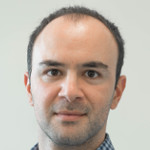 | Michalis Pavlidis, University of Brighton Dr Michalis Pavlidis is a Senior Lecturer in Information Systems Security at the School of Computing, Engineering and Mathematics at the University of Brighton UK, since 2014. He is also a member of the Secure and Dependable Software Systems (SenSe) research cluster. He holds a PhD in software engineering and was awarded a PhD scholarship from the Engineering and Physical Sciences Research Council (EPSRC) and British Telecom (BT). His main research focuses on the engineering of trustworthy information systems. His research interests are in the area of requirements engineering and more particularly in trust, security, and privacy engineering. He is currently participating in the H2020 VisiOn and MITIGATE projects investigating privacy challenges in public administration services and security challenges in maritime supply chains. Home Page: http://www.sense-brighton.eu/our-team/pavlidis/ |
 | Israel Pérez, Universitat Politècnica de València Israel Pérez received both his M.Sc. in Computer Engineering and his Ph.D. in Telecommunications Engineering (Dr.Ing.) from the Universitat Politècnica de València in 2000 and 2009, respectively. He has been enrolled in the Communications Department since 2004, where he Works as a senior researcher in the Distributed Real-time Systems Laboratory. He has been actively involved in national and international research and development projects, mainly for government agencies, defence and European Commission EU-FP6, EU-FP7 and Horizon 2020. His areas of interest include real time systems, command and control systems, cyber security and tactical communications. Home Page: http://www.upv.es |
 | Stefan Rass, Universität Klagenfurt Stefan Rass graduated with a double master degree in mathematics and computer science from the Alpen-Adria Universität Klagenfurt (AAU) in 2005. He received a PhD degree in mathematics in 2009, and habilitated on applied computer science and system security in 2014. His research interests include applied system security, as well as complexity theory, statistics, decision theory and game-theory. He authored numerous papers related to security and applied statistics and decision theory in security. Closely related to the project is his (co-authored) book Cryptography for Security and Privacy in Cloud Computing, published by Artech House. He participated in various nationally and internationally funded research projects. Currently, he is an associate professor at the AAU, teaching courses on theoretical computer science, complexity theory, security and cryptography. Home Page: https://www.aau.at/en/ |
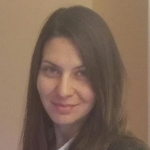 | Anna Sarri, ENISA Anna Sarri joined ENISA in 2014 as an Officer in NIS. Her work is evolving around studies related to National Cyber Security Strategies (NCSS), Critical Information Infrastructure Protection (CIIP) and studies that provide guidelines and support to the European Commission and the EU Member States regarding the implementation of the Directive on network and information security. In the past, she worked for more than ten years in the telecoms sector holding several positions, such as IT Security engineer, service provision officer and technical team leader. She holds a B.Sc. in Computing and a M.Sc. in Information Security and Computer Crime from the University of South Wales in the UK. Home Page: https://www.enisa.europa.eu |
 | Stefan Schauer, AIT Austrian Institute of Technology Stefan Schauer is an experienced researcher in AIT’s Center for Digital Safety & Security. He studied Computer Science at the University of Klagenfurt and received his PhD in Theoretical Physics, working on Quantum Cryptography, at the Technical University Vienna. Since 2005 he is working for the AIT in several projects related to the fields of classical security and risk management. Currently, his main focus lies in the field of risk management and risk assessment as well as security architectures for critical infrastructures. In this context, he is interested in risk assessment using game theoretic approaches and the identification and handling of threats coming from the human factor. He is coordinating the FP7 project “Hybrid Risk Management for Utility Networks” (HYRIM). Home Page: http://www.ait.ac.at |
 | Paul Smith, AIT Austrian Institute of Technology Paul Smith is a Senior Scientist in the Center for Digital Safety and Security at AIT, Austrian Institute of Technology. Previous to this appointment he was a Senior Research Associate at Lancaster University, UK. He received his PhD in September 2003 and graduated in 1999 with an honours degree in Computing from Lancaster. Paul’s research interests are focused on the security and resilience of critical information infrastructures. He has participated in a number of international research projects in this area, and has published articles on numerous aspects that relate to this core interest. Home Page: http://www.ait.ac.at |
